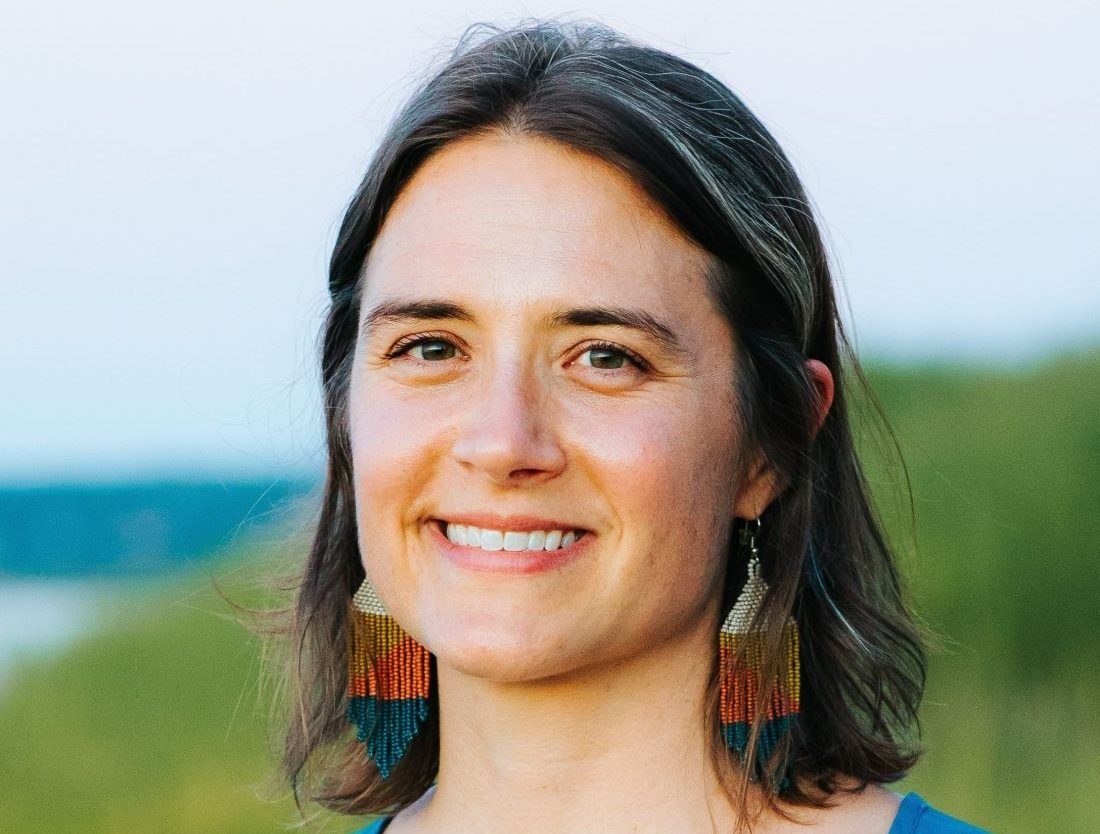Background
Caitlin Elsaesser, PhD., LISCW, is an Associate Professor in the School of Social Work at the University of Connecticut. After graduating from Carleton College, Elsaesser worked as a high school teacher in Chicago. But witnessing the neighborhood conditions with high levels of violence and concentrated poverty that her students experienced soon changed her career trajectory. After seeing her students struggle in the classroom due to the trauma they experienced, she realized she wanted to work with people one-on-one to understand what kind of supports were needed for younger individuals to heal from trauma. “Seeing first-hand the results of decades of policies that disinvested in these communities, I felt motivated to do work directly to address those conditions,” she says.
As Elsaesser reflects on her early teaching, she realizes that her primary interest was not the teaching itself. “My favorite experiences were not when I was teaching grammar or writing but were in the conversations I had with my students and getting to know their life stories,” she says.
Her experiences prompted her to switch to a career as a clinical social worker working with adolescents in a school setting and after school program. Over time, she became motivated by the possibility of making systems change and went on to get her doctorate in social work at the University of Chicago.
Elsaesser’s current role at UConn consists of teaching research classes, focusing on both community-based participatory research and human behavior in the social environment. She is a longtime mindfulness practitioner, bringing mindfulness practices into her teaching as a way to facilitate conversations in the classroom and to help her students connect with the material that is being taught.
Elsaesser’s current research focuses on co-conducting research with young people who have been impacted by structural violence, such as those living in neighborhoods with concentrated poverty due to long standing racist policies. Elsaesser partners with community agencies to guide the content of research questions in terms of what is most important in their community. She also engages in youth participatory action research: partnering with teams as co-researchers, identifying research questions, collecting data, analyzing the data, and then coming up with some kind of action.
Elsaesser and her team have been working for seven years with an organization called Compass Youth Collaborative, serving young people who have been impacted by community violence in Hartford, CT. She partnered with this organization to explore whether mindfulness might support youth manage stress that they experience in their daily lives. Elsaesser and her team also have partnered with a Youth Participatory Action Research Board of Hartford to collect data about the sources of stress, how young people are managing their stress, and whether mindfulness is a practice in which they are already engaging. Through this collaborative work, Elsaesser and her colleagues documented that there already were many mindfulness practices in place, and that youth will be most receptive to mindfulness when taught by individuals from the same community.
Involvement with CSCH
Elsaesser finds it very important to prioritize the health and well-being of children in school settings and supports the Collaboratory’s mission. “In my experience, schools are often one of the most central institutions that young people are engaged with,” she says. She believes that there are endless opportunities for support and transformation due to the amount of time children spend at school. Elsaesser values CSCH’s broad definition of health and its focus on the whole child and has written a CSCH brief on virtual peace rooms.
You can learn more about Elsaesser and her work through her UConn faculty page and her lab website.
Fun Facts
In her free time, Elsaesser loves to bake with her two children, and is a particular fan of a 24-hour, no knead bread. She also enjoys water color painting in nature, especially birds and plants.
Undergraduate Researcher Elena Roberts interviewed Caitlin Elsaesser and wrote this profile.
